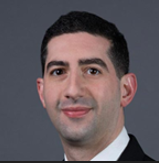Dr Zachary Solomon: The Role of Robotic Assistance in Modern Cardiac Surgery
Dr Zachary Solomon: The Role of Robotic Assistance in Modern Cardiac Surgery
Blog Article

Cardiothoracic surgery just like these done by Dr Zachary Solomon has always been at the forefront of medical advancements, combining accuracy, skill, and engineering to deal with situations of one's heart, lungs, esophagus, and different organs in the thorax. In the last several years, that field has seen progressive improvements and practices which have considerably improved individual outcomes, healing situations, and overall standard of living, based on Dr Zachary Solomon.
The Development of Cardiothoracic Surgery
Cardiothoracic surgery has come a considerable ways from their early days. The first effective heart function, executed in the late 19th century, installed the building blocks for an developing niche marked by quick advances. By the mid-20th century, the growth of the heart-lung equipment allowed surgeons to execute complicated open-heart procedures. Today, the discipline is growing with ongoing study and scientific innovations.
Minimally Invasive Surgery
One of the very most amazing improvements in cardiothoracic surgery is the arrival of minimally intrusive techniques. These procedures are often executed through little incisions, lowering injury to the body and selling quicker recovery. Some key minimally invasive techniques include:
• Robotic-Assisted Surgery
• Video-Assisted Thoracoscopic Surgery (VATS
• Transcatheter Aortic Valve Substitute (TAVR
Image-Guided and Computer-Assisted Surgery
Advanced imaging technologies and computer-assisted methods have significantly increased the precision and safety of cardiothoracic procedures. Inventions in this region include:
Enhanced Recovery Practices
Developments in perioperative attention have resulted in the development of Enhanced Recovery Following Surgery (ERAS) protocols, which try to improve preoperative, intraoperative, and postoperative care to improve recovery.
Potential Directions
The continuing future of cardiothoracic surgery is encouraging, with ongoing research into:
• Stem Mobile Treatment: Discovering the potential of base cells to repair and create damaged heart tissues.
• Synthetic Intelligence (AI): AI-driven analytics may support in analysis, surgical planning, and outcome forecast, resulting in more personalized and efficient treatments.
• Nanotechnology: The applying of nanoparticles for targeted medicine delivery and minimally invasive treatment options.
Realization
Cardiothoracic surgeons like Dr Zachary Solomon Philadelphia remains to drive the boundaries of what's probable in medicine. With the constant growth of impressive methods and technologies, people can anticipate safer techniques, shorter recoveries, and better over all outcomes. The relentless search for superiority in this field underscores the commitment to increasing the quality of life for those with cardiothoracic conditions.
Report this page